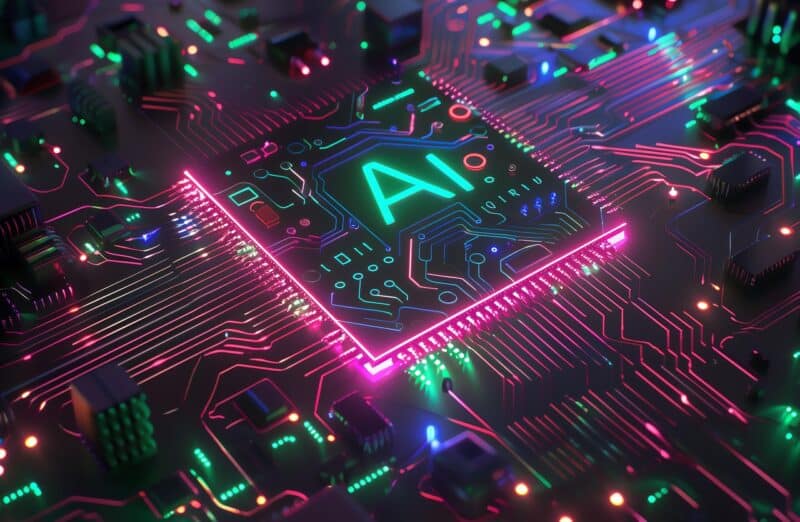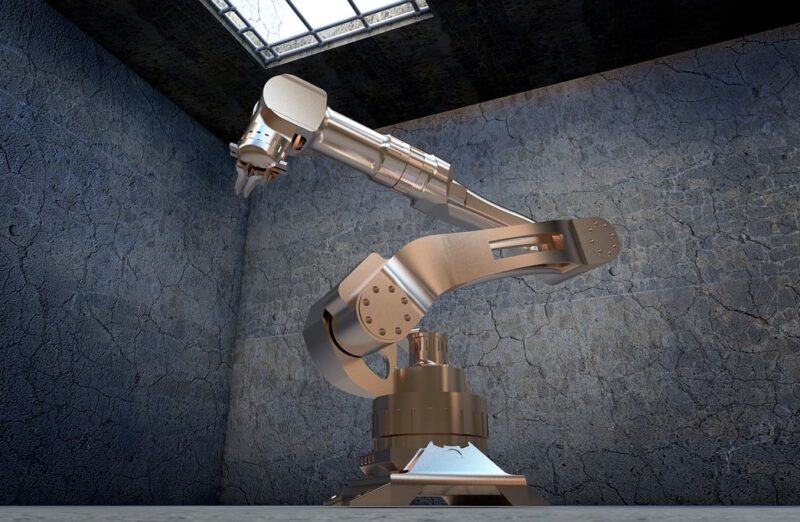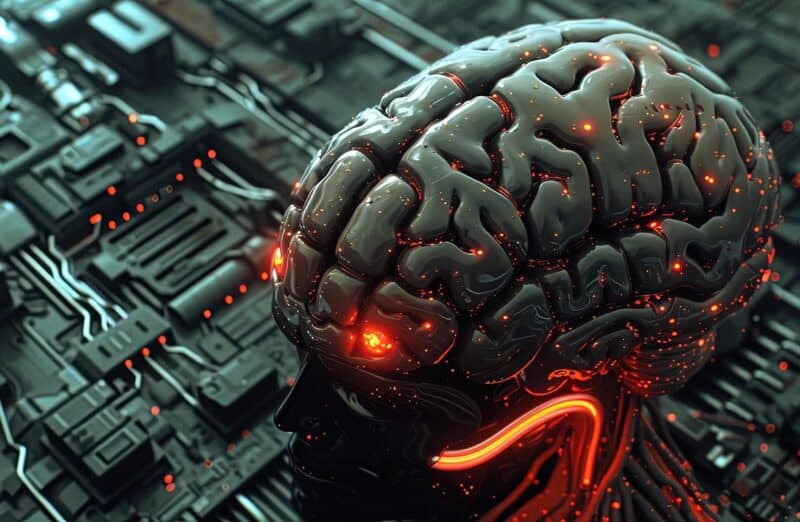Artificial Intelligence, Automation, Machine Learning and Big Data
In this section, we’ll look at how technologies like Artificial Intelligence (AI), automation, machine learning, and big data are changing jobs and creating new opportunities. Understanding these changes will help you get ready and future proof your knowledge and skills base , which will be full of new chances and challenges.

What is Artificial Intelligence (AI), Automation, Machine Learning, and Big Data?

Artificial Intelligence (AI)
AI is when computers are programmed to think and learn like humans. It includes things like machine learning, where computers get better at tasks over time, and robots that can make decisions. AI helps computers do things that normally require human thinking. For example, in a business setting, AI is used in customer service chatbots. These chatbots can handle customer inquiries 24/7, answering common questions and even processing orders, making the process faster and more efficient.

Automation
This is when machines or software take over tasks that people used to do. AI is a big part of this because it makes machines smarter, so they can handle more complex jobs without humans. For example, robots on factory lines or AI-powered tools that automate routine tasks like entering data.

Machine Learning
This is a type of AI where computers learn from data and improve on their own over time. For example, when streaming services recommend movies or shows based on what you’ve watched before, they’re using machine learning to guess what you might like.

Big Data
This involves looking at huge amounts of information to find patterns and useful insights. Companies use AI and machine learning to help make sense of all this data so they can understand what customers like, improve their products, and make better decisions.
The role of businesses
Countries all over the world are realising how important these technologies are for growing their economies and improving people’s lives and Governments are setting big goals to use automation and AI while making sure that everyone benefits from these new advancements. Businesses are a big part of this change. Many companies are spending a lot of money on automation and machine learning to become more efficient and productive. This not only helps them stay competitive but also creates new tech-focused jobs. But as jobs change with technology, it’s important for companies to help their workers learn new skills so they can keep up.
The future of work
Looking ahead, it’s clear that jobs in the future will be different from what we know today. While some jobs might be taken over by machines, new jobs will pop up that need skills in technology, creativity, and problem-solving. It’s important to stay flexible and open-minded about your career choices as the world of work evolves.
Where we are now
Automation and machine learning (ML) are already redefining industries by enabling tasks to be completed faster, more accurately, and with fewer resources. According to McKinsey’s Future of Work report, up to 45% of work activities could be automated with existing technologies, enhancing productivity but also displacing jobs that rely on repetitive tasks.
Where we’re heading
The next decade will bring even greater integration of artificial intelligence (AI) and big data. ML will not only automate routine processes but also create predictive models that revolutionise customer service, manufacturing efficiency, and operational decision-making. For example, Price Waterhouse Cooper, PwC, the leading Professional Services firm, estimates that AI could contribute up to £232 billion to the UK economy by 2030, driven by its applications in every sector.
Why act now
Organisations must rethink workforce strategies, focusing on upskilling employees to work alongside AI rather than being replaced by it. The World Economic Forum highlights that roles requiring digital fluency, data literacy, and adaptability will become essential in navigating this shift. By acting now, businesses can gain a competitive edge, avoid disruption, and lead in the adoption of transformative technologies.
Visitor Economy
The visitor economy sector is entering an era of profound transformation, driven by advancements in AI, automation, and sustainability. These technologies are reshaping how businesses in this sector engage with customers, manage operations, and deliver outstanding experiences.
Some of the advancements and opportunities we expect to see in this sector include:-
Advanced predictive analytics and AI integration
Seamless travel experiences through AI
AI-driven destination management
Immersive experiences with Augmented Reality (AR) and Virtual Reality (VR)
Personalisation through wearable technology
Agri-Sector
The agriculture and agri-tech sector stands at the forefront of innovation, with AI, robotics, and sustainable practices reshaping how food is produced, processed, and distributed. Lincolnshire is leading the way by investing in these technologies and preparing the workforce for this transformation right now. By embracing these changes, the sector will continue to address global challenges such as climate change, food security, and labour shortages while driving growth and profitability.
Some of the advancements and opportunities we expect to see in this sector include:-
Advanced predictive analytics and AI integration
Seamless operations with robotics and automation
Vertical farming and controlled environment agriculture (CEA)
Blockchain for transparent supply chains
Biotechnology and genetic innovation
Construction Sector
The construction sector is undergoing a significant transformation as advanced technologies and sustainability reshape how we design, build, and manage structures. Lincolnshire is well-positioned to lead these advancements by adopting innovative practices and preparing the workforce for change. By embracing these developments, the sector will help address challenges such as labour shortages, resource inefficiencies, and climate change while driving economic growth and creating more resilient infrastructure.
Some of the advancements and opportunities we expect to see in this sector include:
Building information modelling (BIM) and digital twins
Robotics and automation in construction
AI-powered project management
Augmented reality (AR) and Virtual reality (VR) in Construction
Modular and prefabricated construction
Manufacturing
The manufacturing sector is undergoing a significant transformation, driven by advancements in artificial intelligence (AI), automation, machine learning, and big data. In regions like Lincolnshire, embracing these technologies will be essential to enhance productivity, sustainability, and competitiveness. By adopting innovative practices and upskilling the workforce, the sector can address challenges such as labour shortages and resource inefficiencies while driving economic growth.
Some of the advancements and opportunities we expect to see in this sector include:
Smart manufacturing and industry 4.0
Advanced robotics and automation
AI-driven product design and customization
Digital twin technology in manufacturing
Augmented reality (AR) and virtual reality (VR) in manufacturing
Health and Social Care
The health and social care sector is poised for a revolution driven by advancements in artificial intelligence (AI), automation, machine learning, and big data. In a rural county like Lincolnshire, these technologies are vital to meeting the growing demand for healthcare services, addressing workforce shortages, and improving patient outcomes. By embracing innovation and investing in workforce development, the sector will be able to enhance efficiency, deliver more personalised care, and achieve long-term sustainability.
Some of the advancements and opportunities we expect to see in this sector include:
AI-powered diagnostics and treatment planning
Robotics and automation in healthcare
Big data for preventative and personalised care
AI and automation in social care
Natural Language Processing (NLP) for administrative efficiency
Personalised mental health support using AI
Public sector and local authority services
The public sector, including Lincolnshire County Council, is set to undergo transformative changes driven by advancements in artificial intelligence (AI), automation, machine learning, and big data. These technologies will not only reshape how the council operates but also redefine its role in supporting businesses and residents across key sectors such as the visitor economy, agriculture, construction, manufacturing, and health and social care. By adopting innovative technologies and fostering a forward-thinking workforce, the council will be able to streamline operations, enhance service delivery, and provide the infrastructure needed for Lincolnshire to thrive in a tech-driven future.
Some of the advancements and opportunities we expect to see in this sector include:
AI-driven decision-making for public services
Smart infrastructure and transport solutions
Big data for emergency planning and response
AI and automation in administrative efficiency
Empowering key sectors with AI and big data
Local courses and education providers that could support you career can be found here.

